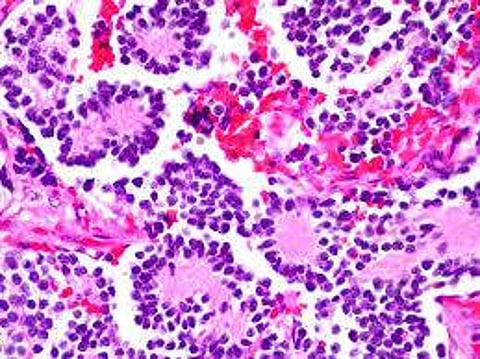

Researchers have identified that a chromosome instability gene USP24 is frequently missing in pediatric patients with neuroblastoma, an aggressive form of childhood cancer. The finding, published in the journal Cancer Research, provides important insight into the development of this disease. "Neuroblastoma is a highly aggressive cancer that nearly exclusively affects young children," said researcher Paul Galardy at Mayo Clinic in the US, adding that, despite the use of multiple treatments approaches many children die of this disease every year.
To identify new therapeutic approaches, the team examined the role of a set of enzymes known as deubiquitinating enzymes (DUB) in this disease. They chose this family of enzymes because they could be targeted using drug therapy. "We used a computational approach to determine the effect of too much or too little of a gene on the outcome of a variety of human cancers to identify DUBs that may play a role in treating neuroblastoma," the researcher said.
The team used this method to identify two genes USP24 and USP44 with the biggest potential to affect the outcomes of young patients with neuroblastoma. "These genes were the ones most closely implicated as being important for accurate cell division," he says.They found that USP44 plays an important role in cell division and was associated with poor outcomes in lung cancer. Therefore, the team shifted its attention to USP24 to understand how it might contribute to neuroblastoma. "We observed low levels of USP24 in children with neuroblastoma whose tumours were highly aggressive, leading to early progression or recurrence of the disease," the researcher said.
He said low levels of USP24 occur commonly with other markers of aggressive disease, including amplification of the MYCN cancer gene and a loss of a large segment of chromosome 1.The team also found that USP24 is not simply a marker for aggressive disease. Using genetically engineered mice that lack the USP24 gene, they found that USP24 plays an important role in protecting cells against errors in chromosome distribution that take place during cell division.
